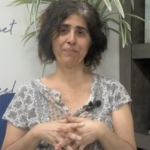Medically Reviewed by: Dr. Bautista
Our Editorial Policy
Updated on: May 6, 2022
About Esophageal Cancer
Esophageal cancer is a type of gastrointestinal cancer, which also includes gastric cancer, colorectal cancer, pancreatic cancer, and liver cancer. Esophageal cancer occurs in the esophagus, the long tube through which food is pushed down your throat and into your stomach. This form of cancer can appear anywhere in the esophagus, though it more commonly starts in the cells lining the esophagus. Esophageal cancer is also more prominent in men than women and remains the sixth most common cancer-related cause of death in the world.
Esophageal cancer is categorized based on the cells it affects. The most common type of esophageal cancer in the U.S. are:
- Esophageal adenocarcinoma – Adenocarcinoma affects the cells of the mucus-secreting glands in the esophagus and typically starts in the lower part of the esophagus. Esophageal adenocarcinoma is the most common type of esophageal cancer in the United States.
- Squamous cell carcinoma – A cancer patient with esophageal carcinoma will have linings of cells on the surface of the esophagus, often in the upper and middle portions of the esophagus. Esophageal squamous cell carcinoma is the most common and prevalent form of esophageal cancer worldwide.
Causes and Risk Factors
All forms of cancer come from genetic mutations that cause the abnormal and uncontrolled growth of cancerous cells, which accumulate and eventually form into an esophageal tumor that can grow and spread to other parts of the body.
The exact cause of this mutation is unknown, but there are certain factors known to increase your risk of getting the disease. One of the most widely known contributors to esophageal cancer is smoking, which introduces tobacco and other carcinogens into your throat and esophagus.
Chronic irritation of the esophagus can also contribute to cellular changes that may result in esophageal cancer. This is often why conditions like gastroesophageal reflux disease (GERD) and Barrett’s esophagus are common risk factors of esophageal cancer. GERD is a chronic digestive condition that results in persistent acid reflux, during which stomach acids may travel up into the esophagus, resulting in irritation and heartburn.
Early Detection, Diagnosis, and Staging
In its early stages, esophageal cancer may not present any noticeable symptoms. As the cancer spreads and progresses, some common signs and symptoms may include:
- Problems swallowing (dysphagia)
- Unintended weight loss
- Pressure, pain, or burning in the chest
- Indigestion or heartburn
- Persistent hoarseness or coughing
Cancer diagnosis may rely on various tests. This often includes an endoscopy, during which the oncologists pass a flexible tube equipped with a video lens into your esophagus. The doctor can search your esophagus for cancer and other areas of irritation or abnormality. The doctor may also be able to take a tissue sample (biopsy) using the endoscope. This sample is then sent to a lab for further analysis of the esophageal cancer cells.
.
The oncologists use information from these tests to determine the stage of your esophageal cancer. There are five stages (0 to IV) with higher numbers designating cancer that has advanced and spread to other organs or parts of the body.
Holistic & Natural Cancer Treatments for Esophageal Cancer
Typical treatments for the disease in cancer patients include surgery to remove the tumor or part of the esophagus as well as preoperative chemotherapy/preoperative chemoradiation such as neoadjuvant chemotherapy and neoadjuvant chemoradiation therapy. While these chemoradiotherapy treatments may be effective and kill esophageal cancer cells, they often come at the price of negative side effects. Chemotherapy and radiation therapy, in particular, can cause damage to healthy tissue. With alternative treatments, you can mitigate any negative side effects and support your continued recovery through natural solutions that will not hurt your body.
At Immunity Therapy Center, you can find a wide range of alternative esophageal cancer treatment options for you. Our team is committed to developing attentive care, advanced esophageal cancer treatment plans, and helping you choose the best targeted therapy options that work based on your personal preferences. Depending on the cancer diagnosis, stage of the cancer and your health needs, our cancer care is personalized for each patient. Regular one-on-one consultations with Dr. Bautista help to guide your treatment and allow for adjustments to your program as necessary. Our focus is on personal attention and relationships, ensuring that you are treated as a human being and not a chart or diagnosis. Our team has over 20 years of experience treating a variety of cancer types, ranging from pancreatic cancer, stomach cancer to lung cancer, we have the knowledge and expertise to help you through your cancer journey. Contact us today to learn more or to receive a holistic cancer treatment for esophageal cancer patients.
Sources:
https://www.ncbi.nlm.nih.gov/pmc/articles/PMC5387137/
https://www.yalemedicine.org/conditions/gastrointestinal-cancers
At Immunity Therapy Center, our goal is to provide objective, updated, and research-based information on all health-related topics. This article is based on scientific research and/or other scientific articles. All information has been fact-checked and reviewed by Dr. Carlos Bautista, a Board Certified Medical Doctor at Immunity Therapy Center. All information published on the site must undergo an extensive review process to ensure accuracy. This article contains trusted sources with all references hyperlinked for the reader's visibility.
Customized Care For the Body And The Mind
Discuss Your Custom Alternative Treatment Plan With Our Team Today
Hear from Our Patients
See why the Immunity Therapy Center is a trusted name for medical tourism and cancer treatment centers in Mexico.
Start Your Healing Journey with a FREE Consultation
At ITC, we understand the importance of feeling heard and supported. Fill out our form, to speak with one of our patient advocate in the next 24 hours to have a free consultation and guidance, creating a personalized treatment plan just for you. You’re not alone on your path to healing. We’re here to support you through every step!







